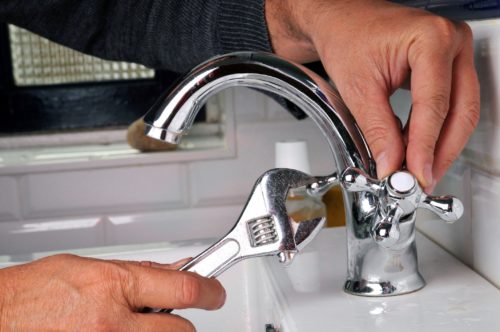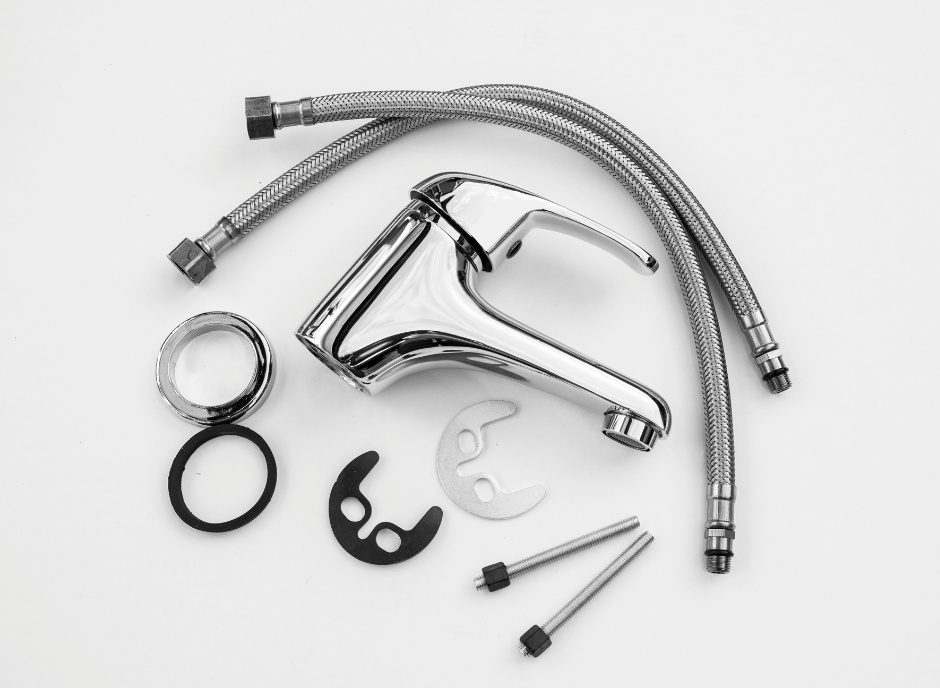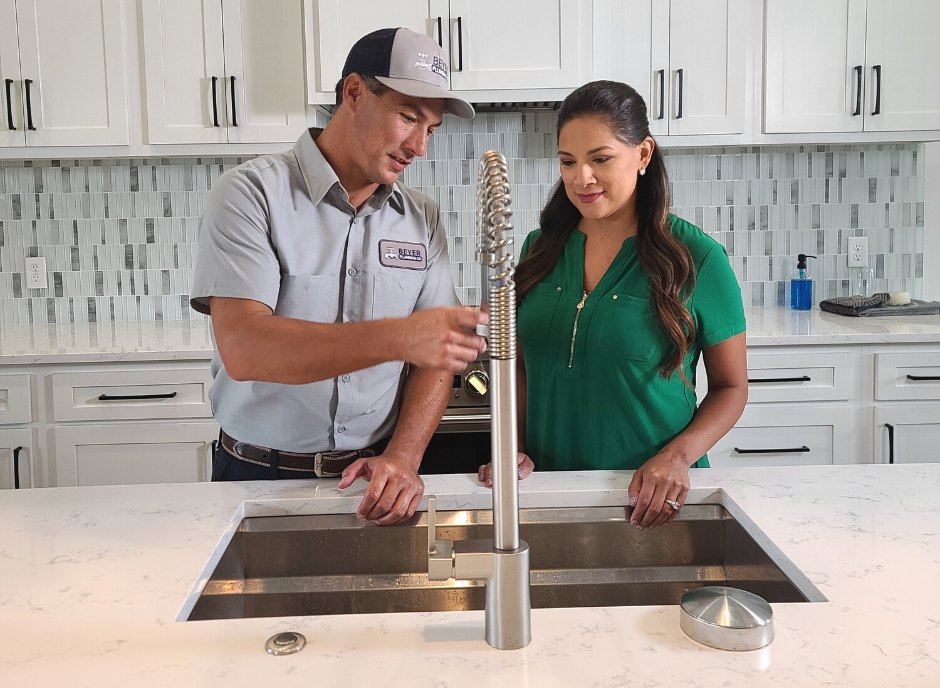THE PARTS OF A FAUCET
Every faucet has the same basic parts that enable it to deliver water to your sink. While the external parts, such as the spout and handle, are important to proper operation, the internal parts are the ones that primarily cause issues. These parts include the ball valve, O-rings, the cartridge valve, small springs, and the aerator. The ball valve helps control the temperature of the water in a single-handle faucet. O-rings help seal the connecting parts in the faucet. Cartridge valves help control the pressure and intensity of the outgoing water. When one of these components fails, it can lead to a leak.
INTERNAL DAMAGE IN FAUCETS
Internal corrosion in faucets is one of the most common problems we encounter at Beyer Plumbing. This usually happens as a result of hard water, which has a lot of dissolved minerals that can damage the internal faucet parts. The ball valve, often made of metal, can corrode slightly, and allow small amounts of water to come through when the faucet is turned off, resulting in a leak. These same minerals can wear out O-rings, making them stiff until they crack when you move a handle on the faucet. Leaks caused by a bad O-ring typically happen around the base of the faucet, whereas ball valve issues typically manifest themselves in a leak from the spout.
MINERAL BUILDUP INSIDE THE FAUCET
Hard water can also result in mineral buildup inside the faucet. The problem with mineral buildup, is that it puts excess water pressure on parts that aren’t designed to handle high-pressure water. Over time, this can force the water past O-rings and other gaskets, even when the gaskets and O-rings are in good condition. Mineral deposits inside your faucet can also cause a reduced flow of water coming out of the spout. Depending on the location of the mineral deposits, you may be able to clean them out by removing the faucet from the sink, and using a narrow brush inside the faucet.
CARTRIDGE VALVE FAILURE
Cartridge valves regulate the water pressure coming to the faucet, so that a manageable pressure comes out of the spout. The constant strain of this normal operation can cause cartridge valves to fail. You’ll often notice a problem with a cartridge valve, when you aren’t able to turn your water off completely when you move the handles. You’ll end up having to press harder and harder on the handles to stop leaks. Depending on the issue you’re having with the valve, you may be able to repair the valve instead of completely replacing it.
EVALUATE WATER HARDNESS
If you have excessively high water pressure coming into your home, many of the plumbing fixtures in your home are likely to develop leaks eventually. Unusual noises coming from your plumbing supply pipes and leaky plumbing fixtures are both signs that your home’s water pressure might be too high. Beyer Plumbing can install a water pressure meter on the main water supply line coming into your home to confirm this condition. If the water pressure exceeds what is normal, we can install a pressure-reducing valve, so that you can enjoy more reliable performance from your home’s plumbing system.
INSTALL A WATER SOFTENER
Hard water can cause a variety of problems in a home. You can measure the hardness of your home’s water using testing kits available at most stores. Once you determine that you have hard water, your best course of action is to install a water softener. Removing dissolved minerals will help prevent wear and tear on your home’s supply lines, drain lines, and plumbing fixtures. In addition, most homeowners report feeling cleaner after showers when there are fewer dissolved minerals in their home’s water supply, making a water softener a great investment.
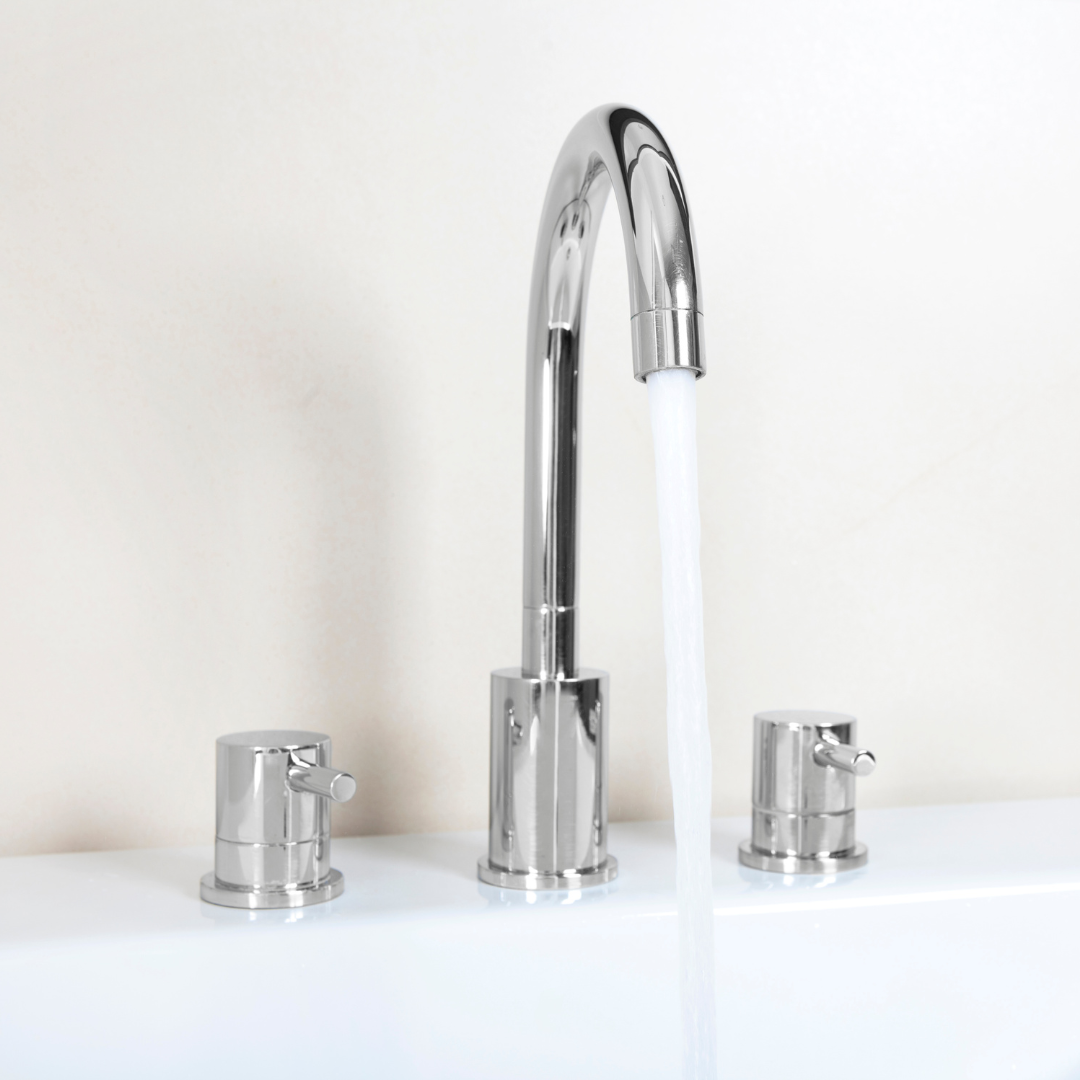
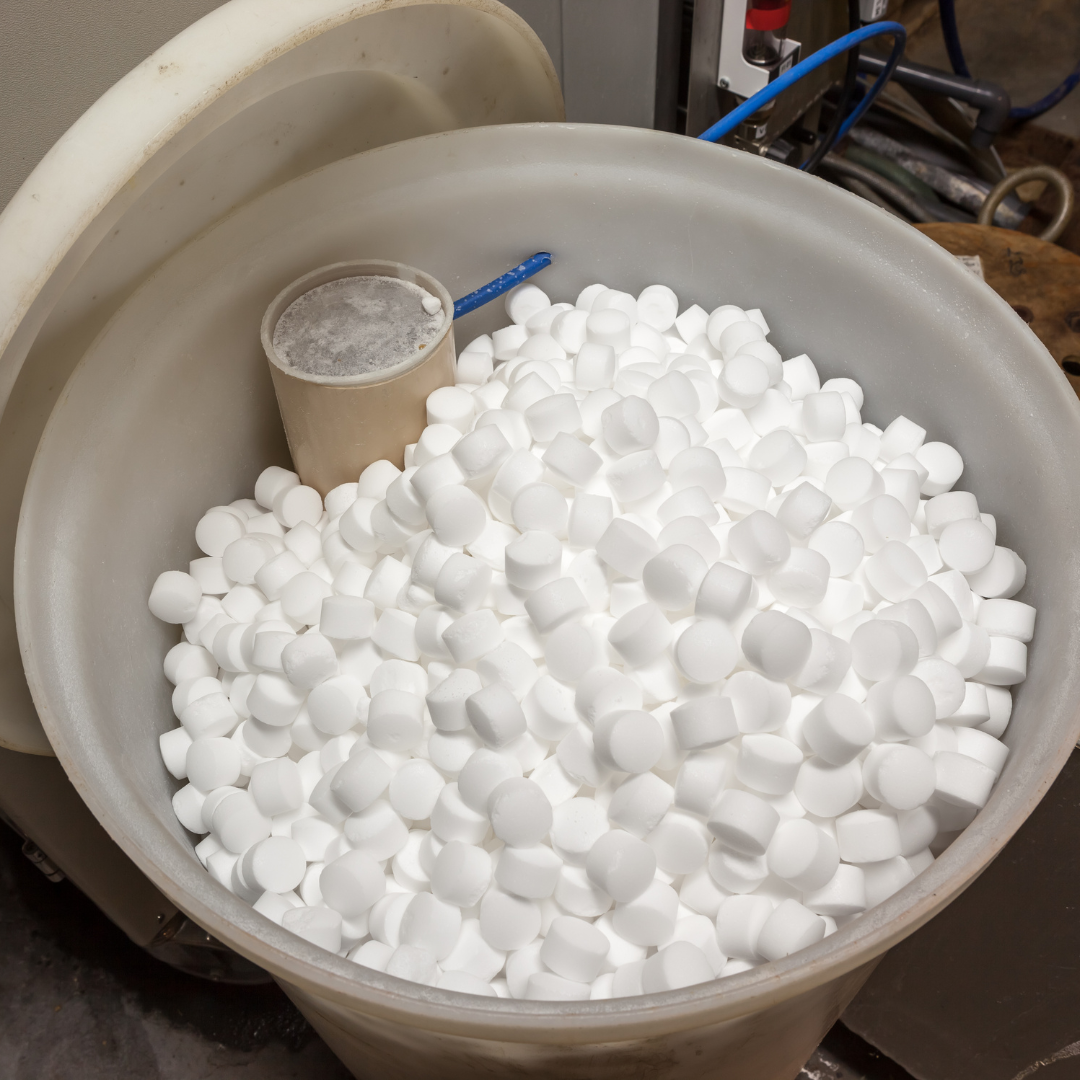
KEEP YOUR FAUCET DRY
Keeping the exterior of your faucet dry is a simple way to avoid a leaking faucet. Throughout the course of a day, water tends to build up around the base of the faucet when you wash your hands, brush your teeth, and take care of other cleaning needs. This accumulated water can lead to corrosion of the seal responsible for preventing leaks around the base of the faucet. You’ve likely seen faucets that have small bits of metal missing. This is almost entirely caused by corrosion from water sitting on the faucet’s surface. Wiping a faucet down doesn’t take much time, and can keep your faucet looking great for many years.
STOP WATER AT THE SOURCE
If you have a faucet that’s in a rarely used bathroom or other location, we recommend turning the water supply off at the local shut-off valves until you need to use the sink again. Taking the time to do this will prevent the faucet from holding back water pressure for long periods of time. Just like any other mechanical device, when you don’t use a faucet for a long time, the internal components can become brittle and stiff, leading to leaks when the faucet is eventually turned on. If there is no water in the faucet when you’re not using it, you won’t have to worry as much about these issues.
KEEPING FAUCETS LEAK-FREE
At Beyer Plumbing, we want to help our customers save money by saving water. That’s why we offer faucet repair and replacement, leak detection, water heater installation, drain cleaning, and much more. We’ve been in business for over 30 years, and the people of this community love our constant commitment to excellence and personal service. These commitments consistently earn us five-star customer reviews. Contact us today to learn more about taking care of plumbing problems in your home.

